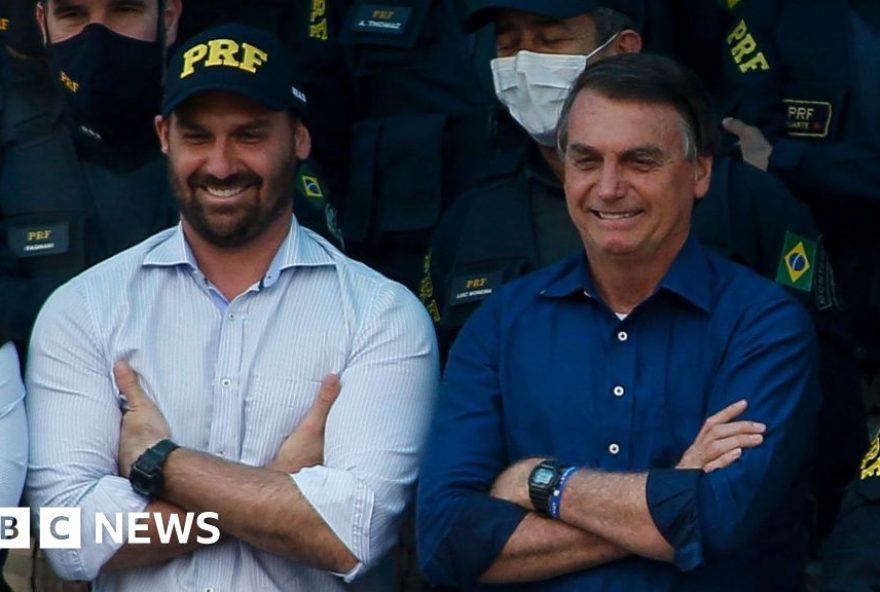Brazil’s chief prosecutor announced on Monday that Eduardo Bolsonaro, a congressman and son of former President Jair Bolsonaro, has been charged with coercion. This decision follows the recent sentencing of the ex-leader to 27 years in prison due to his involvement in an attempted coup plot. The Attorney General’s office officially accused Eduardo Bolsonaro of coercing individuals, adding to the legal troubles faced by the Bolsonaro family.
The charges against Eduardo Bolsonaro are part of a broader legal battle in Brazil, where allegations of corruption and abuse of power have plagued the Bolsonaro administration. The coercion accusations add to the controversy surrounding the former president and his family, further tarnishing their political image. As a congressman and prominent figure in Brazilian politics, Eduardo Bolsonaro’s legal woes are closely monitored by the public and government officials, sparking debates about accountability and transparency within the government.
Recent developments in the Bolsonaro family’s legal affairs have captured national attention, with many questioning the integrity of Brazil’s political landscape under their influence. The revelations of coercion charges against Eduardo Bolsonaro have deepened the ongoing crisis within the country’s political sphere, amplifying concerns about corruption and unethical practices among high-ranking officials. Brazil’s justice system faces increasing pressure to address these issues and restore faith in the country’s governance, amidst growing discontent and unrest among the population.
The timing of the coercion charges against Eduardo Bolsonaro coincides with a period of heightened political instability in Brazil, as the aftermath of Jair Bolsonaro’s conviction continues to reverberate across the nation. The legal proceedings involving the Bolsonaro family have intensified public scrutiny of the country’s leadership and raised questions about the future of Brazilian democracy. As the legal case unfolds, Brazil grapples with the repercussions of past actions and strives to uphold the principles of justice and accountability in the face of mounting challenges and controversies.





